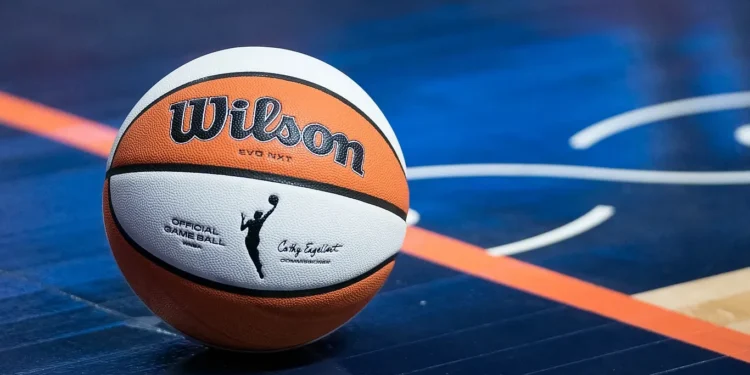Feb 12, 2025 Story by: Editor
The WNBA has partnered with Opill, the first over-the-counter daily oral contraceptive in the U.S., and the nonprofit Black Women’s Health Imperative (BWHI) to launch an initiative aimed at advancing health equity for Black women by providing educational resources on reproductive health.
Titled “Level the Court,” the initiative, which launched Tuesday, includes a spring campus tour featuring stops at the University of Texas at San Antonio on April 1 and three historically Black colleges and universities: Lincoln University in Missouri on March 28, Spelman College in Georgia on April 16, and Southern University in Louisiana on a yet-to-be-determined date.
BWHI selected these institutions based on accessibility concerns. Leila Bahbah, U.S. women’s health brand lead at Perrigo, the maker of Opill, explained that the schools were chosen in “states where there is more restricted access and restrictive laws surrounding what [girls, women and those who can become pregnant] can and cannot do.”
Black women have long faced disparities in the healthcare system, and this initiative seeks to address those inequities.
“Our focus is on empowering Black women to have access and the equity they deserve in terms of their health care,” Bahbah said.
Beyond the tour, the University of South Carolina will host “WNBA on Campus” on Feb. 25, an event presented by Opill that will feature WNBA players Allisha Gray, Shakira Austin, and Rickea Jackson. The event will include health resources, DJs, giveaways, photo opportunities, and games, WNBA Chief Growth Officer Colie Edison said.
Through WNBA-led activations and community outreach, Opill and BWHI aim to equip Black women with information and options regarding reproductive healthcare.
“Systemic racism in health care has created distrust and bias from providers, which has led to Black women being dismissed or not given the full range of options for their reproductive health,” said Zsanai Epps, senior director of reproductive initiatives at Black Women’s Health Imperative.
The WNBA has a long-standing history of social justice advocacy, from supporting the Black Lives Matter protests in 2016 and 2020 to influencing the Georgia Senate elections in 2020. Addressing healthcare disparities aligns with the league’s broader mission.
Following its last collective bargaining agreement in January 2020, which improved support for women, mothers, and family planning, the league is preparing for another negotiation period expected to further expand these rights.
With “Level the Court,” the WNBA aims to extend its impact beyond players and into the community.
“The WNBA has always said that women’s health is society’s health,” Edison said. “We’re really trying to mirror the work our players are already doing.”
Minnesota Lynx player Napheesa Collier, co-founder of the 3-on-3 professional women’s basketball league Unrivaled, stressed the importance of personal agency in reproductive health. As a working mother balancing her career and raising a daughter, she emphasized the significance of informed decision-making.
“It’s so important that we do everything we can to ensure that women know their options when it comes to reproductive health,” Collier said.
Contraceptive access remains a crucial topic, with discussions on reproductive health often stigmatized, debated, or misunderstood.
“Less than half of reproductive age women in the United States are aware of the current status of abortion policy in their state, 45%, nearly a quarter describe the status incorrectly, 23%, and a third are unsure about the status of abortion in their state, 32%,” Epps said, citing the 2024 Women’s Health Survey by KFF, a nonpartisan health policy research organization. “Too often, young women don’t realize policy changes can directly impact their access to health care, so staying informed, advocating for themselves and knowing their options is crucial.”
Opill, which received FDA approval for nonprescription use in July 2023, will be made available to attendees at each event.
Although the WNBA’s tour will visit only five campuses, the league will share additional resources on wnba.com/levelthecourt.
“Although we won’t get to every college campus, we want every young woman to know that you deserve access to information and care, no matter where you are,” Epps said. Source: ANDSCAPE
















